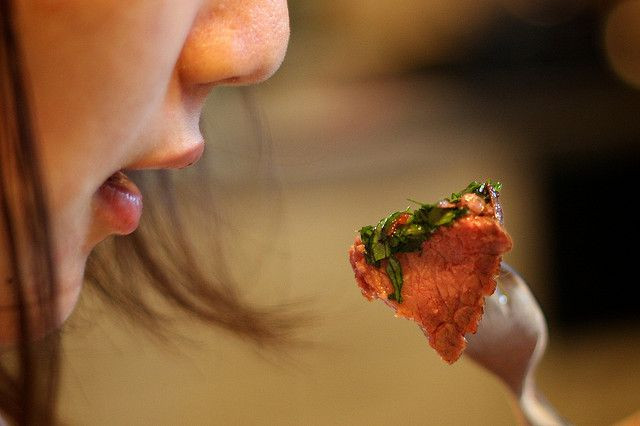Slow Eating Reduces Food Intake Significantly

People who eat slowly consume significantly fewer calories than people who eat fast, providing more evidence of the link between eating speeds and obesity, a newly published study finds.
Researchers at the University of Rhode Island found that men eat significantly faster than women, heavier people eat faster than slimmer people, and refined grains are consumed faster than whole grains, among other findings.
"It takes time for your body to process fullness signals," said Kathleen Melanson, associate professor of nutrition at the University of Rhode Island, "so slower eating may allow time for fullness to register in the brain before you've eaten too much," she concluded.
The latest research follows up on a landmark 2007 study conducted by Melanson that was the first to confirm the popular dietary belief that eating slowly reduces food intake.
That study found that women who were told to eat quickly consumed 646 calories in nine minutes, but the same women consumed just 579 calories in 29 minutes when encouraged to pause between bites and chew each mouthful 15 to 20 times before swallowing.
For the next study, Melanson plans to recruit overweight or obese fast-paced eaters and teach them to eat slowly to see what role that might play in weight management, she said. Her team also plans to study specific slow-eating techniques to see how they may affect appetite and weight loss.
How much more can a Fast Eater consume?
Researchers found that fast eaters consumed about 3.1 ounces of food per minute, medium-speed eaters consumed 2.5 ounces per minute, and slow eaters consumed 2 ounces per minute.
The researchers also found what Melanson described as "very strong gender differences." At lunch, the men consumed about 80 calories per minute while the women consumed 52 calories per minute.
"The men who reported eating slowly ate at about the same rate as the women who reported eating quickly," said Melanson, director of the URI Energy Balance Laboratory.
Foods that require More Time to Eat
The study also found that whole grains take more time to eat because they are more fibrous and have to be chewed more.
Participants consumed a meal of whole grains – whole grain cereal and whole wheat toast – significantly slower than when eating a similar meal of refined grains.



























